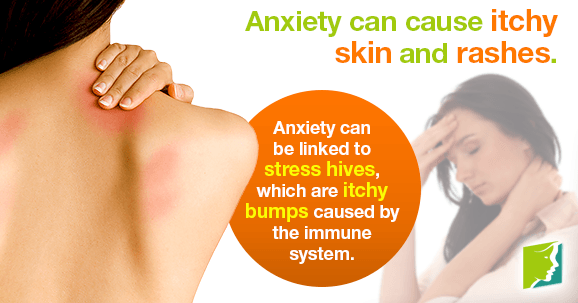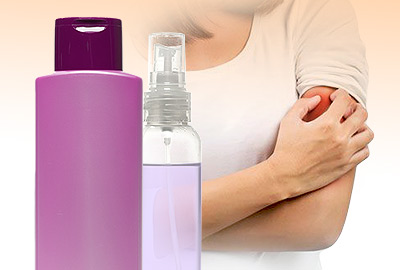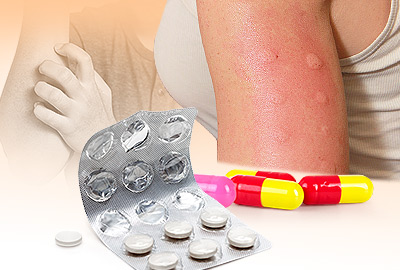Anxiety is generally defined as a psychological condition that is characterized by overwhelming feelings of worry, tension, and nervousness. Anxiety disorders affect nearly 40 million American adults on average. Anxiety can cause a variety of bothersome symptoms, including irritability and itchy skin. Although itchy skin isn't the most common symptom of anxiety, it still occurs in some people. High stress and anxiety can cause the body to release a compound called histamine, which causes itching, flushing, and rashes. This response is similar to an allergic reaction, and can be extremely uncomfortable. Keep reading to learn more about anxiety and itchy skin.
Anxiety
Anxiety is a broad term that comprises of many different disorders, including social phobia, generalized anxiety disorder, post-traumatic stress disorder, obsessive-compulsive disorder, and panic disorder. Causes of anxiety disorders can be anything from hormone fluctuations and high stress to genetics, medication side effects, and emotional or physical trauma.
There are several physical and emotional symptoms that accompany anxiety disorders. Physical symptoms can include sweating, dizziness, itchy skin, increased heart rate, shortness of breath, muscle tension, insomnia, nausea, and headaches. Emotional symptoms can include feelings of dread, intense fear, restlessness, and irritability.
Itchy Skin
Itchy skin, medically known as pruritus, is an uncomfortable sensation that can occur anywhere on the body. The body produces natural oil, called sebum, which moisturizes skin. When sebum is depleted, skin becomes dry and itchy.
There are a number of common reasons for Itchy skin, including environmental and internal factors. Environmental causes of itchy skin include cold weather, hot showers, and harsh soaps. Internal causes include high stress and anxiety, allergic reactions, thyroid problems, and eczema.
The Link
Because anxiety can cause symptoms like sweating and high stress, it can be indirectly linked to itchy skin and rashes. Sometimes people experience stress hives, which are itchy bumps caused by the immune system.
Sweat rash (also known as heat rash) can also be caused by anxiety; essentially, anxiety causes sweating, and sweating result in heat rash. Heat rash is benign, but can take up to two weeks to go away. Additionally, anxiety can trigger existing skin conditions, like eczema or psoriasis.
Treatments
While it is crucial to maintain a healthy and active lifestyle in order to manage anxiety and stress, there are also helpful at home remedies for relieving itchy skin. These include:
- Cold compresses
- Lavender oil
- Oatmeal bath soaks
- Cortisone
- Aloe vera
Anxiety can lead to itchy skin by causing the body to release a compound called histamine, which induces itching and irritation. It is important to reduce stress and anxiety as much as possible in order to prevent itchy skin. Taking precautions to protect your skin with natural remedies, like lavender oil and oatmeal, can help keep it healthy and prevent itchy skin.
Sources
- Mayo Clinic Staff. (2014). Itchy skin (pruritus). Retrieved December 10, 2014, from http://www.mayoclinic.org/diseases-conditions/itchy-skin/basics/causes/con-20028460
- National Health Service UK. (2014). Itching - Causes. Retrieved December 10, 2014, from http://www.nhs.uk/Conditions/Itching/Pages/Causes.aspx
- National Institute of Mental Health. (n.d.). Anxiety Disorders. Retrieved December 10, 2014, from http://www.nimh.nih.gov/health/publications/anxiety-disorders/index.shtml




